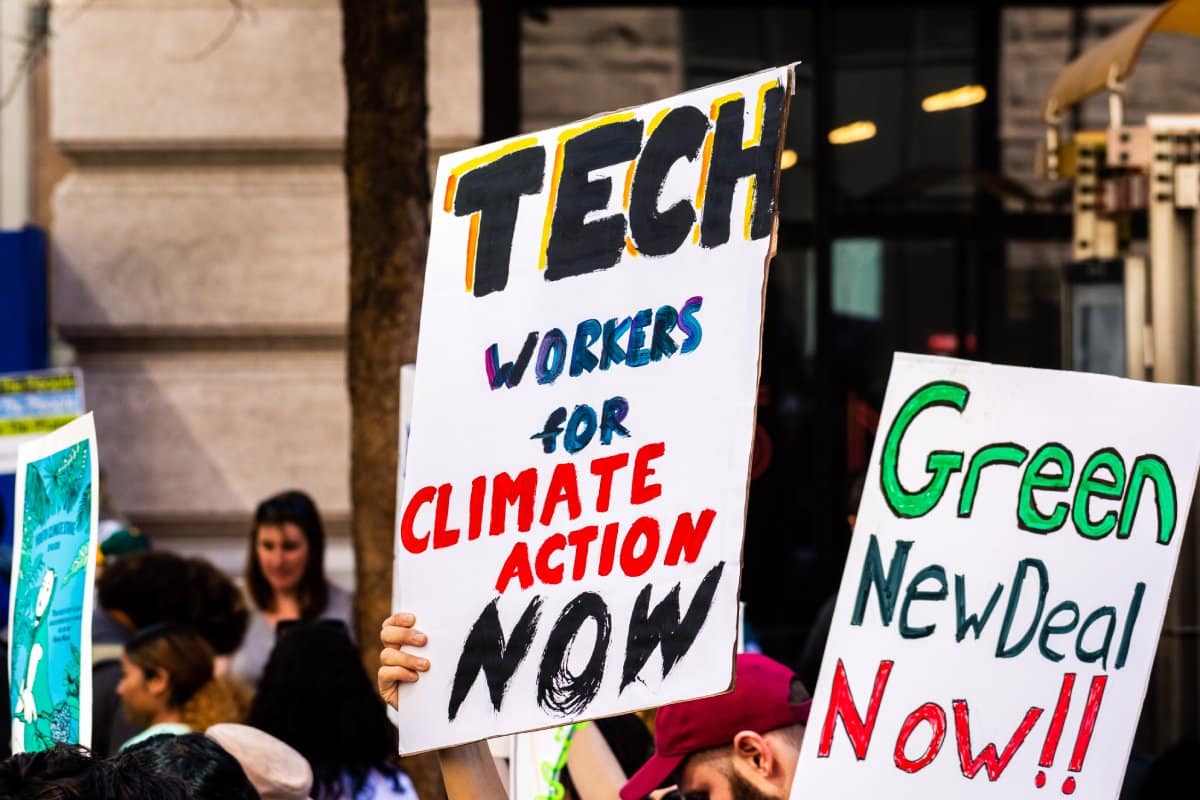Ever feel like the weight of the world is just too much? When it comes to climate change, it’s easy to feel overwhelmed, even hopeless. The science is clear, the impacts are real, and the future looks, well, a little scary. But how do we process this doom without giving in to despair? It’s a tough question, but one we need to tackle if we’re going to keep moving forward.
Acknowledge the Anxiety

Climate change anxiety, or “eco-anxiety,” is a real and growing phenomenon. According to the American Psychological Association, more people—especially younger generations—are feeling a deep sense of fear and helplessness about the future of our planet. Recognizing that this anxiety is valid is the first step toward dealing with it. You’re not alone in feeling this way, and acknowledging these feelings can actually help in finding ways to manage them.
Stay Informed, But Set Boundaries

In the age of 24/7 news, it’s easy to get overwhelmed by constant updates on climate disasters. While staying informed is crucial, it’s equally important to set boundaries. Choose reliable news sources, limit doomscrolling, and give yourself permission to take breaks. This isn’t about burying your head in the sand; it’s about preserving your mental health so you can stay engaged without burning out.
Focus on What You Can Control

It’s easy to feel powerless in the face of a global crisis, but focusing on what you can control can make a big difference. Whether it’s reducing your carbon footprint by cutting down on energy use, supporting sustainable businesses, or voting for leaders who prioritize climate action, your actions matter. Local actions, like participating in community recycling programs or planting trees, can also have a positive impact. Every bit counts.
Connect with Others

Isolation can amplify feelings of anxiety. Connecting with others who share your concerns can provide support and help you feel less alone. Across the U.S., climate action groups are popping up, from local community initiatives to national organizations like the Sunrise Movement. Joining these groups can be empowering and can help channel your anxiety into meaningful action.
Take Action in Your Community

Taking local action can be one of the most effective ways to deal with climate anxiety. Many cities and states across America are implementing their own climate policies, from transitioning to renewable energy to setting up community gardens. Getting involved in these initiatives not only helps the environment but also strengthens your connection to your community, providing a sense of purpose and agency.
Find Hope in Innovation

Amid the doom and gloom, there’s also a lot of exciting innovation happening. The U.S. is seeing a surge in renewable energy projects, with solar and wind power growing rapidly. Companies are developing new technologies to capture carbon, reduce waste, and create sustainable products. By focusing on these positive developments, you can balance out the negative news and hold onto a sense of optimism.
Push for Policy Change

One of the most impactful ways to address climate change is through policy. The Inflation Reduction Act, passed in 2022, is one example of significant legislative action aimed at reducing carbon emissions in the U.S. Getting involved in advocacy—whether it’s supporting candidates who prioritize climate action, participating in rallies, or simply contacting your representatives—can help push for the systemic changes we need.
Embrace a Sustainable Lifestyle

Living more sustainably isn’t just good for the planet—it can also help alleviate some of the anxiety that comes with climate change. From reducing waste and conserving water to choosing sustainable products and eating a plant-based diet, there are many ways to make a positive impact. Embracing a sustainable lifestyle can also inspire others around you to do the same, creating a ripple effect of positive change.
Practice Self-Care

Don’t underestimate the power of self-care in the face of climate anxiety. Whether it’s spending time in nature, practicing mindfulness, or simply taking time to relax, self-care is crucial for maintaining your mental health. Climate change is a marathon, not a sprint, and taking care of yourself ensures you’re in it for the long haul.
Educate and Empower

Knowledge is power, and educating yourself and others about climate change can be empowering. There are countless resources available—from documentaries like Before the Flood to books like The Uninhabitable Earth—that can help you understand the challenges we face and what can be done about them. Sharing this knowledge within your community can help spread awareness and inspire collective action.
Support Climate Justice Movements

Climate change disproportionately affects marginalized communities, both in the U.S. and around the world. Supporting climate justice movements, like those led by Indigenous groups or environmental justice organizations, is crucial. These movements work to ensure that the voices of those most impacted by climate change are heard and that solutions are equitable and just.
Accept the Uncertainty

The future is uncertain, and that’s a hard truth to swallow. But accepting that uncertainty is part of the process. We can’t predict exactly what will happen, but we can prepare, adapt, and do our best to mitigate the impacts. It’s about finding a balance between acknowledging the challenges and holding onto hope.
Finding a Path Forward

Climate change is daunting, and it’s normal to feel overwhelmed by the scale of the problem. But by acknowledging our feelings, taking action, and connecting with others, we can process the doom and keep moving forward. It’s not about pretending everything is okay—it’s about finding ways to cope, adapt, and continue fighting for a better future.
Featured Image Credit: Shutterstock / Sundry Photography.
The images used are for illustrative purposes only and may not represent the actual people or places mentioned in the article.





